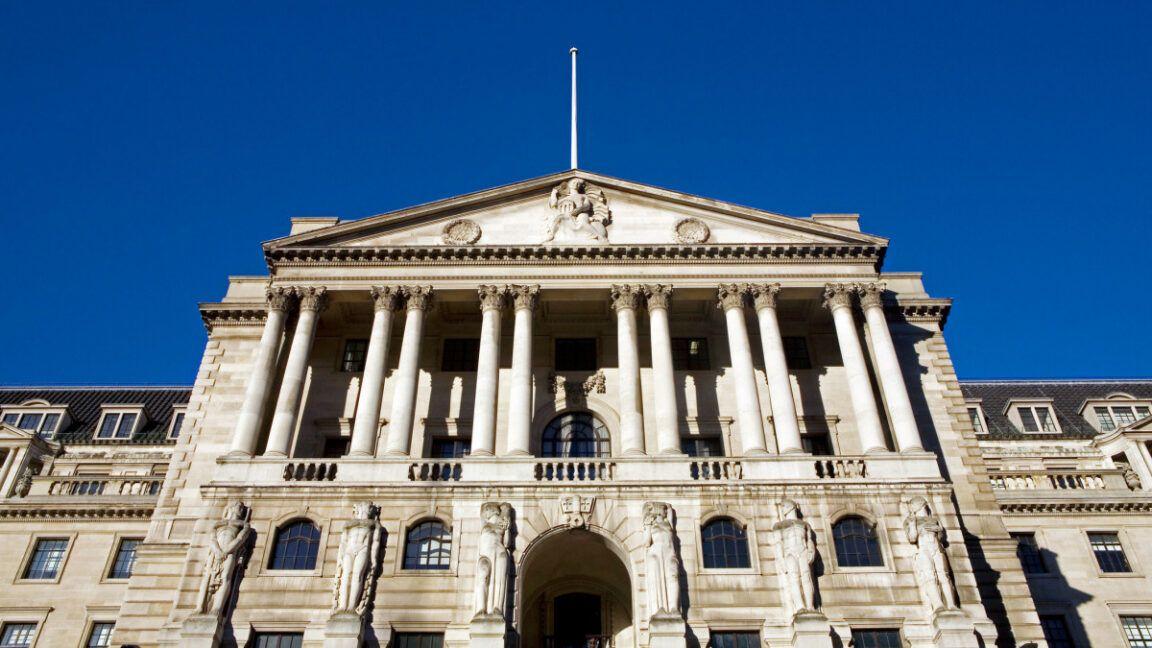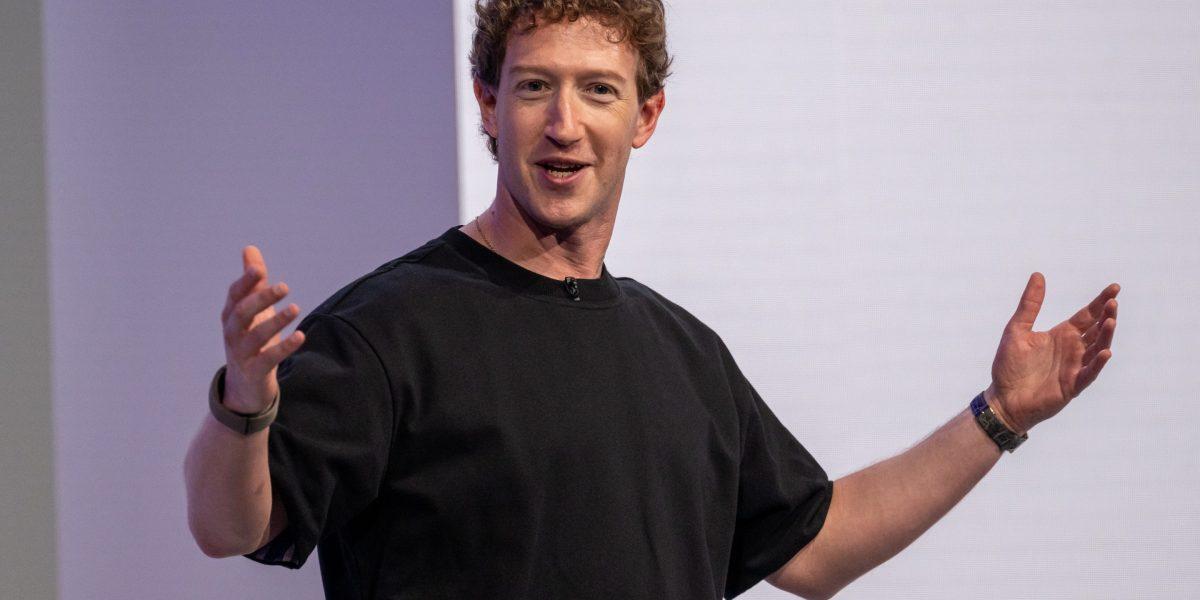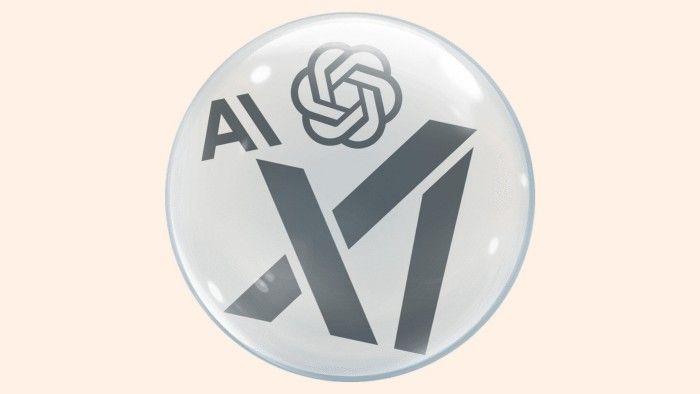Jeff Bezos: AI in 'Industrial Bubble', but Promises Gigantic Benefits for Society
12 Sources
12 Sources
[1]
Bezos Says AI Spending Boom Is a Bubble That Will Pay Off
Amazon.com Inc. Chairman Jeff Bezos said that the spending on artificial intelligence resembles an "industrial bubble" that could lead to lost investment but will also make society better off. "When people get very excited, as they are today about artificial intelligence for example, is every experiment gets funded, every company gets funded, the good ideas and the bad ideas," Bezos said, pointing to companies getting billions of dollars of funding before they have a product. "Investors have a hard time in the middle of this excitement distinguishing between the good ideas and the bad ideas."
[2]
Jeff Bezos says AI is in an 'industrial bubble' but society to get 'gigantic' benefits from the tech
TURIN, Italy -- Artificial intelligence is currently in an "industrial bubble" but the technology is "real" and will bring big benefits to society, Amazon Founder Jeff Bezos said on Friday. The term bubble usually refers to a period of inflated stock prices or valuations of companies that have disconnected from the fundamentals of a business. One of the most famous bubbles that burst was the 2000 dotcom crash where the value of internet companies plummeted. Exor CEO John Elkann asked Bezos on stage at Italian Tech Week in Turin, Italy whether there were signs that the current AI industry is in bubble. "This is a kind of industrial bubble," the Amazon founder said. Bezos laid out some of the key characteristics of bubbles, noting that when they happen, stock prices are "disconnected from the fundamentals" of a business. "The second thing that happens is that people get very excited like they are today about artificial intelligence," Bezos added. During bubbles, every experiment or idea gets funded, he told the audience. "The good ideas and the bad ideas. And investors have a hard time in the middle of this excitement, distinguishing between the good ideas and the bad ideas. And that's also probably happening today," Bezos said. "But that doesn't mean anything that is happening isn't real. AI is real, and it is going to change every industry."
[3]
Jeff Bezos Says AI Bubble Is Good Because It Will Eliminate the Weak
Many investors and financial experts are concerned that a looming AI bubble could wreak havoc on the economy -- but Amazon founder Jeff Bezos can't wait for it to burst. During a tech conference in Italy last week, Bezos conceded that the AI industry is in a "kind of industrial bubble," as CNBC reports. Besides companies' valuations becoming "disconnected from the fundamentals" of a business, Bezos argued that "people get very excited like they are today about artificial intelligence." But to the fourth-richest person in the world, a collapse of the AI industry could eventually be a positive development -- because, in his mind, it could eliminate the weak from the market. "The [bubbles] that are industrial are not nearly as bad, it can even be good, because when the dust settles and you see who are the winners, societies benefit from those inventions," he argued. "That is what is going to happen here, too." "This is real, the benefits to society from AI are going to be gigantic," the billionaire said. Bezos' comments highlight tech leaders' and investors' continued insistence that the tech will eventually "usher in an era of abundance" marked by a boost in productivity, cheaper goods, and people living healthier lives. That kind of optimism has played a key part in an industry that has poured astronomical amounts of resources into a tech that still has a lot to prove. Experts have become increasingly skeptical of the industry's claims, though, as it becomes clear that AI isn't yet ready to replace workers. A landmark MIT study earlier this year found that a whopping 95 percent of generative AI pilots at companies are falling flat, failing to drive rapid revenue growth. Bezos isn't alone in arguing that an AI bubble could ultimately be a positive development. "When bubbles happen, smart people get overexcited about a kernel of truth," OpenAI CEO Sam Altman told a small group of reporters in August, as quoted by The Verge. "Are we in a phase where investors as a whole are overexcited about AI? My opinion is yes." At the time, Altman argued that "someone" will lose a "phenomenal amount of money," seemingly implying that OpenAI could survive largely unscathed. "My personal belief, although I may turn out to be wrong, is that on the whole, this will be a huge net win for the economy," he added, closely echoing Bezos' latest comments. More recently, Altman reiterated that "people will overinvest and lose money, and underinvest and lose a lot of revenue," during a tour of one of his firm's data centers being built in Abilene, Texas, earlier this month, as quoted by The Associated Press. "We'll make some dumb capital allocations," he added, but "over the arc that we have to plan over, we are confident that this technology will drive a new wave of unprecedented economic growth." Bezos and Altman's optimism highlights a growing divergence between their lofty promises and actual expectations. "When [investors are] excited, they tend to think about the good things that can go right, and they diminish the things you should be skeptical about that can go wrong," said Goldman Sachs CEO David Solomon at the same tech conference in Italy last week, as quoted by CNBC. "I think that there will be a lot of capital that's deployed that will turn out to not deliver returns." "There will be a reset, there will be a check at some point, there will be a drawdown," he added. "The extent of that will depend on how long this [bull run] goes."
[4]
AI in an 'industrial bubble' but will benefit society: Bezos
Artificial intelligence technology is in an "industrial bubble," Amazon founder Jeff Bezos told a tech conference in Italy on Friday, but the benefits to society will be "immense." "Investors don't usually give a team of six people a couple billion dollars with no product... and that's happening today," Bezos told an audience at Tech Week in Turin. "This is a kind of industrial bubble," said Bezos, who has invested in the American generative AI start-up Perplexity. But that is not the same as a banking bubble such as the 2008 financial crisis, he argued. "Those bubbles society wants to avoid. The ones that are industrial are not nearly as bad, it could even be good, because when the dust settles and you see who are the winners, society benefits from those inventions... and that's what's going to happen here." "This is real," Bezos continued. "The benefits to society from AI are going to be gigantic." Multiple technologies are in a kind of "golden age," he said, echoing language used by US President Donald Trump. "There's never been a better time to be excited about the future." "AI is real. And it is going to change every industry... it is going to affect every company in the world."
[5]
AI in an 'industrial bubble' but will benefit society: Bezos
Turin (Italy) (AFP) - Artificial intelligence technology is in an "industrial bubble," Amazon founder Jeff Bezos told a tech conference in Italy on Friday, but the benefits to society will be "immense". "Investors don't usually give a team of six people a couple billion dollars with no product... and that's happening today," Bezos told an audience at Tech Week in Turin. "This is a kind of industrial bubble," said Bezos, who has invested in the American generative AI start-up Perplexity. But that is not the same as a banking bubble such as the 2008 financial crisis, he argued. "Those bubbles society wants to avoid. The ones that are industrial are not nearly as bad, it could even be good, because when the dust settles and you see who are the winners, society benefits from those inventions... and that's what's going to happen here." "This is real," Bezos continued. "The benefits to society from AI are going to be gigantic." Multiple technologies are in a kind of "golden age," he said, echoing language used by US President Donald Trump. "There's never been a better time to be excited about the future." "AI is real. And it is going to change every industry... it is going to affect every company in the world."
[6]
Bezos says AI spending boom is a bubble that will pay off
Gift 5 articles to anyone you choose each month when you subscribe. Amazon chairman Jeff Bezos said that the spending on artificial intelligence resembles an "industrial bubble" that could lead to lost investment but will also make society better off. "When people get very excited, as they are today about artificial intelligence for example, is every experiment gets funded, every company gets funded, the good ideas and the bad ideas," Bezos said, pointing to companies getting billions of dollars of funding before they have a product. "Investors have a hard time in the middle of this excitement distinguishing between the good ideas and the bad ideas."
[7]
Bezos says 'industrial bubble' in AI could benefit society
Amazon founder Jeff Bezos suggested Friday that there is a bubble in the artificial intelligence (AI) market but argued this could ultimately benefit society. During an appearance at Italian Tech Week, the billionaire sought to distinguish between what he described as an "industrial bubble" and other niche areas in the stock market. "This is a kind of industrial bubble, as opposed to financial bubbles," Bezos said in a conversation with Ferrari chair John Elkann in Turin, Italy. "The ones that are industrial are not nearly as bad," he continued. "It could even be good because when the dust settles and you see who are the winners, society benefits from those inventions." He pointed to a bubble that formed in the biotechnology industry in the 1990s, noting that investors "all lost money" when it burst but society ultimately received several lifesaving drugs as a result. "That's what's going to happen here too," Bezos said. "This is real. The benefits to society from AI are going to be gigantic." Stock market bubbles form when share prices rapidly increase in a way that is disconnected from their underlying value. Many have raised concerns that the AI boom is fueling a bubble, as tech companies see massive growth even though AI investments have yet to show real returns. "[The] thing that happens when people get very excited, as they are today about artificial intelligence for example, is every experiment gets funded, every company gets funded," Bezos noted. "Investors have a hard time in the middle of this excitement distinguishing between the good ideas and the bad ideas. And so, that's probably also happening today," he added. OpenAI CEO Sam Altman has similarly suggested the AI market is in a bubble, drawing comparisons with the dot-com bubble that burst in 2000. "When bubbles happen, smart people get overexcited about a kernel of truth," Altman reportedly said in August. "If you look at most of the bubbles in history, like the tech bubble, there was a real thing. Tech was really important. The internet was a really big deal. People got overexcited." "Are we in a phase where investors as a whole are overexcited about AI? My opinion is yes," he added at the time. "Is AI the most important thing to happen in a very long time? My opinion is also yes."
[8]
Jeff Bezos Explains Why the AI Bubble Exists, and What's Going to Happen When It Bursts
Research firm MacroStrategy Partnership claims that the AI bubble is 17 times the size of the dot-com bubble, per MarketWatch. Jeff Bezos thinks AI technology is in an "industrial bubble." On Friday at Italian Tech Week in Turin, Italy, Bezos said that the hype and investment currently defining the sector are bigger than the proven profitability of all of the companies within it, CNBC reported. "People get very excited, like they are today, about artificial intelligence," Bezos said at the event. Related: OpenAI CEO Sam Altman Thinks We're in an AI Bubble Because Investors Are 'Overexcited' About Artificial Intelligence Bezos said that bubbles happen when stock prices are "disconnected" from the core of a business, and become overinflated compared to what's produced. So valuations rise much higher than what those companies are actually worth. In the infamous dot-com crash in the early 2000s, Internet-based companies attracted investments, despite not making a profit or having viable business plans. When reality set in, the market crashed, leading to significant losses for investors and bankruptcies for many startups. Bezos explained that during a boom, every experiment or idea ends up getting funded because investors "have a hard time" choosing good ideas over lackluster ones during the excitement. Still, Bezos said that industrial bubbles are "not nearly as bad" because the underlying technology developed in one can benefit society -- even when the bubble bursts. He gave the example of the biotech and pharmaceutical bubble of the 1990s, which resulted in the creation of life-saving medicines, even though some companies went under. "When the dust settles and you see who the winners [are], societies benefit from those inventions," Bezos said. "That is what is going to happen here, too. This is real, the benefits to society from AI are going to be gigantic." Meanwhile, AI startups are receiving more money now than ever. PitchBook data shows that AI startups raised $104.3 billion in the U.S. in the first half of 2025, almost as much as all startups raised the entire previous year. Related: Jeff Bezos Sold Billions Worth of Amazon Stock Bezos isn't the only tech billionaire cautioning about an AI bubble -- OpenAI CEO Sam Altman, whose company was just valued at $500 billion, the highest for any private company ever, said in August at a press dinner that he thinks "investors as a whole are overexcited about AI," leading to overfunding. Further, research firm MacroStrategy Partnership claims that the AI bubble is 17 times the size of the dot-com bubble and four times as big as the 2008 real estate one, per MarketWatch.
[9]
Jeff Bezos Calls AI Boom A Bubble -- But Says It's A Good One - Meta Platforms (NASDAQ:META), Amazon.com (NASDAQ:AMZN)
Amazon.com Inc. (NASDAQ:AMZN) founder Jeff Bezos acknowledged that artificial intelligence is in "a kind of industrial bubble" but stressed that the technology is real and will deliver "gigantic" benefits to society. Bezos Calls AI Bubble Constructive At Italian Tech Week in Turin on Friday, Bezos described the current surge in AI investment as fitting the definition of a bubble, noting that valuations are frequently detached from the underlying business fundamentals. He explained that during bubbles, every experiment gets funded -- the good ideas and the bad ideas, adding that it becomes difficult for investors to separate winners from losers. "That's also probably happening today," he noted. However, the Amazon founder said that this does not diminish AI's transformative potential. "AI is real and it is going to change every industry," he stated, calling the hype cycle a natural stage of innovation. See Also: Short-Seller Jim Chanos Bets Against AI Hype, Challenges Brookfield's Data Center Projections Of 10X Growth By 2034 Lessons From Past Industrial Bubbles Bezos compared the present AI boom to the biotech bubble of the 1990s, when many startups collapsed but breakthroughs in medicine and drug development ultimately benefited society. "The [bubbles] that are industrial are not nearly as bad, it can even be good, because when the dust settles and you see who are the winners, societies benefits from those inventions," he said. Zuckerberg And Altman Raise Bubble Concerns Bezos's remarks echo concerns from other tech leaders, including Meta Platforms Inc. (NASDAQ:META) CEO Mark Zuckerberg and OpenAI CEO Sam Altman, both of whom have admitted the industry shows bubble-like traits. Zuckerberg warned earlier this month that today's AI spending frenzy could mirror the dot-com boom-and-bust cycle, but suggested that AI development might avoid a collapse if both model capabilities and demand continue to grow annually. Investors Weigh In On AI Frenzy Wall Street remains divided. Goldman Sachs CEO David Solomon on Friday cautioned that market enthusiasm could lead to a "reset" in valuations, reported CNBC. Earlier this month, investment firm GQG Partners compared the AI boom to the 1999 dot-com crash, citing inflated fundamentals. By contrast, Wedbush analyst Dan Ives dismissed collapse fears, calling AI the "fourth industrial revolution" and predicting the industry is still in the "second inning." Benzinga's Edge Stock Rankings rank Amazon's growth in the 92nd percentile, underscoring its strong performance relative to top AI peers like META. Read Next: Nvidia's Multi-Trillion Dollar AI Playground: McKinsey Quantifies 3.5x Surge In AI Data Center Demand, Presenting $6.2 Trillion Opportunity For NVDA Disclaimer: This content was partially produced with the help of AI tools and was reviewed and published by Benzinga Image via Shutterstock AMZNAmazon.com Inc$219.81-1.17%OverviewMETAMeta Platforms Inc$711.90-2.08%Market News and Data brought to you by Benzinga APIs
[10]
Jeff Bezos Says AI Bubble May Burst But 'AI Is Real' | PYMNTS.com
By completing this form, you agree to receive marketing communications from PYMNTS and to the sharing of your information with our sponsor, if applicable, in accordance with our Privacy Policy and Terms and Conditions. Speaking at Italian Tech Week, Bezos pointed to the fiber-optic cable that outlived the dot-com crash and the life-saving drugs that remained after the 1990s biotech bust, the Financial Times reported Friday. "Investors have a hard time in the middle of this excitement distinguishing between the good ideas and the bad ideas," Bezos said, per the report. "That's also probably happening today. But it doesn't mean that anything that's happening isn't real. AI is real, it's going to change every industry." Earlier during the same conference, Goldman Sachs Chairman and CEO David Solomon said that a lot of the capital being invested in AI will not deliver returns, but that it's not clear if the tech market is in a bubble. Solomon added that AI will transform work. "We are at the beginning of the movie not the end of the movie," Solomon said, per the report. "I wouldn't be surprised if in the next 12-24 months we see a drawdown in equity markets but that shouldn't be surprising given the run we've had." It was reported Aug. 20 that tech stocks were driven down by fears the AI industry is overhyped after a report from MIT found that most organizations were getting "zero return" on their investments into the generative AI space. "The story is spooking people," a trader close to a multibillion-dollar U.S. tech fund said at the time. Days earlier, on Aug. 15, OpenAI CEO Sam Altman said the AI market was in a bubble but that the technology is important. "If you look at most of the bubbles in history, like the tech bubble, there was a real thing," Altman said. "Tech was really important. The internet was a really big deal. People got overexcited. Are we in a phase where investors as a whole are overexcited about AI? My opinion is yes. Is AI the most important thing to happen in a very long time? My opinion is also yes."
[11]
AI in an 'industrial bubble' but will benefit society: Bezos - VnExpress International
"Investors don't usually give a team of six people a couple billion dollars with no product... and that's happening today," Bezos told an audience at Tech Week in Turin. "This is a kind of industrial bubble," said Bezos, who has invested in the American generative AI start-up Perplexity. But that is not the same as a banking bubble such as the 2008 financial crisis, he argued. "Those bubbles society wants to avoid. The ones that are industrial are not nearly as bad, it could even be good, because when the dust settles and you see who are the winners, society benefits from those inventions... and that's what's going to happen here." "This is real," Bezos continued. "The benefits to society from AI are going to be gigantic." Multiple technologies are in a kind of "golden age," he said, echoing language used by U.S. President Donald Trump. "There's never been a better time to be excited about the future." "AI is real. And it is going to change every industry... it is going to affect every company in the world."
[12]
Jeff Bezos says 'AI bubble' is real, benefits to humanity will be 'gigantic'
Investors cautious as Bezos calls AI surge an industrial bubble Jeff Bezos has never been one to shy away from disruptive technologies. The Amazon founder, who built one of the world's most powerful companies by betting on the long-term promise of the internet, is now turning his attention to artificial intelligence. And his message is clear: while the current frenzy around AI bears all the hallmarks of a bubble, the eventual payoff for humanity will be enormous. Speaking at a recent event, Bezos acknowledged what many in Silicon Valley and Wall Street are now whispering: investor enthusiasm for AI has reached a fever pitch. Billions are flowing into startups with untested products, valuations are skyrocketing overnight, and the scramble for computing power has turned data centers into the new oil fields. "This is a bubble," Bezos said, "but an industrial bubble, not a purely financial one." Also read: How to get OriginOS 6 on Vivo X200 Pro and iQOO 13 in India The distinction matters. In his view, industrial bubbles - like the railroads in the 1800s or the dot-com surge of the late 1990s - leave behind infrastructure, innovation, and lasting companies even after speculation dies down. That, Bezos argued, is exactly what is happening with AI. Some ventures will collapse, investors will lose money, and expectations will be reset. But the underlying technology is real and transformative. "Both the good ideas and the bad ideas get funded in times like this," Bezos explained. "But once the dust settles, the innovations that survive can change the world." OpenAI chief executive Sam Altman, who has himself described the current moment as overhyped, made a similar observation earlier this year. Together, their comments mark a rare moment of alignment between two of the most influential voices in technology, both cautioning investors against blind optimism while urging society to keep its eyes on the larger prize. The larger prize, Bezos suggests, could be nothing short of a reinvention of human productivity and knowledge. He envisions AI systems augmenting scientists in drug discovery, automating drudge work in offices, accelerating breakthroughs in climate solutions, and unlocking entirely new industries. "The benefits to humanity are going to be gigantic," he said, noting that history shows transformative technologies often emerge out of chaotic, hype-driven investment cycles. Also read: Nano Banana to Sora 2: No one worried about AI Deepfakes anymore? The comments come at a time when AI stocks, particularly those linked to chipmakers like Nvidia, are dominating market narratives. Analysts debate how much of the current valuation surge is justified and how much is speculative froth. While some investors fear parallels with the dot-com crash, others argue that AI adoption is happening faster and at a greater scale than any previous technological wave. Bezos, who guided Amazon through the dot-com boom and bust, speaks with authority. His company was one of the survivors that not only endured the collapse of the early 2000s but went on to redefine global commerce. That experience, he hinted, gives him confidence in separating short-term volatility from long-term reality. During the dot-com crash, thousands of companies failed. But that didn't mean the internet wasn't real. The internet was very real, and it transformed everything. AI looks like it is going to be the same. For entrepreneurs, his message is both a warning and an encouragement: flashy pitches may still secure funding today, but only those who solve real problems will survive tomorrow. For investors, it is a reminder to look past hype and focus on fundamentals. And for the public, it is reassurance that even if the AI rollercoaster hits a dip, the technology itself will continue advancing. Bezos's words echo a broader truth about technological revolutions: they rarely arrive in neat, linear fashion. They come in waves of hype, disappointment, correction, and renewal. What matters is not the froth, but the foundation that remains when it recedes. And if Bezos is right, that foundation will support something gigantic.
Share
Share
Copy Link
Amazon founder Jeff Bezos describes the current AI industry as an 'industrial bubble' but remains optimistic about its long-term benefits for society. He distinguishes this from harmful financial bubbles, suggesting that the AI boom could lead to significant technological advancements.
Bezos Identifies AI 'Industrial Bubble'
Amazon founder Jeff Bezos has characterized the current state of artificial intelligence (AI) as an 'industrial bubble' during his appearance at Italian Tech Week in Turin, Italy
1
. Bezos, who has invested in the generative AI startup Perplexity, pointed out that the excitement surrounding AI has led to a situation where 'every experiment gets funded, every company gets funded, the good ideas and the bad ideas'1
.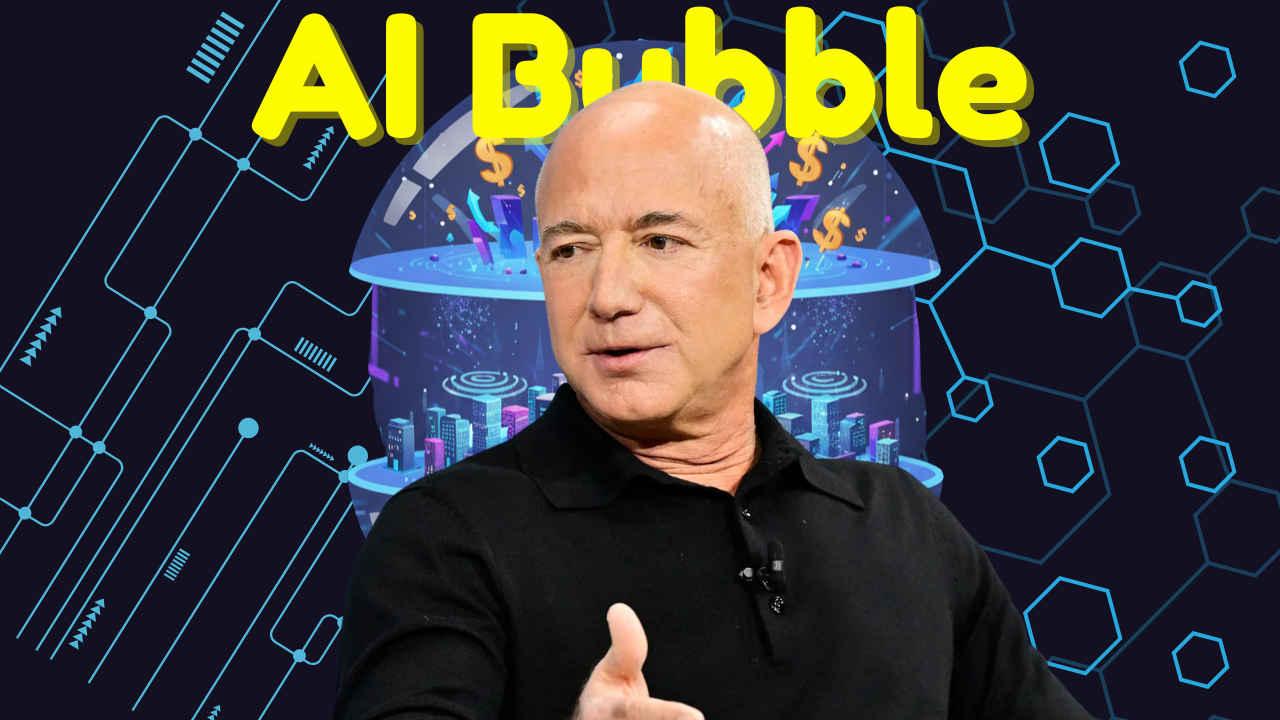
Source: Digit
Distinguishing Industrial from Financial Bubbles
The fourth-richest person in the world made a clear distinction between this 'industrial bubble' and harmful financial bubbles like the 2008 financial crisis
4
. Bezos argued that industrial bubbles could potentially be beneficial, stating, 'The ones that are industrial are not nearly as bad, it could even be good, because when the dust settles and you see who are the winners, society benefits from those inventions'5
.Investor Excitement and Market Dynamics
Bezos highlighted the unusual market dynamics, noting, 'Investors don't usually give a team of six people a couple billion dollars with no product... and that's happening today'
4
. This observation underscores the intense investor excitement surrounding AI technologies, even in the absence of proven products or business models.Optimism for AI's Future Impact
Despite acknowledging the bubble-like conditions, Bezos remains highly optimistic about AI's potential. He emphasized, 'This is real. The benefits to society from AI are going to be gigantic' . Bezos predicted that AI would 'change every industry' and 'affect every company in the world'
5
.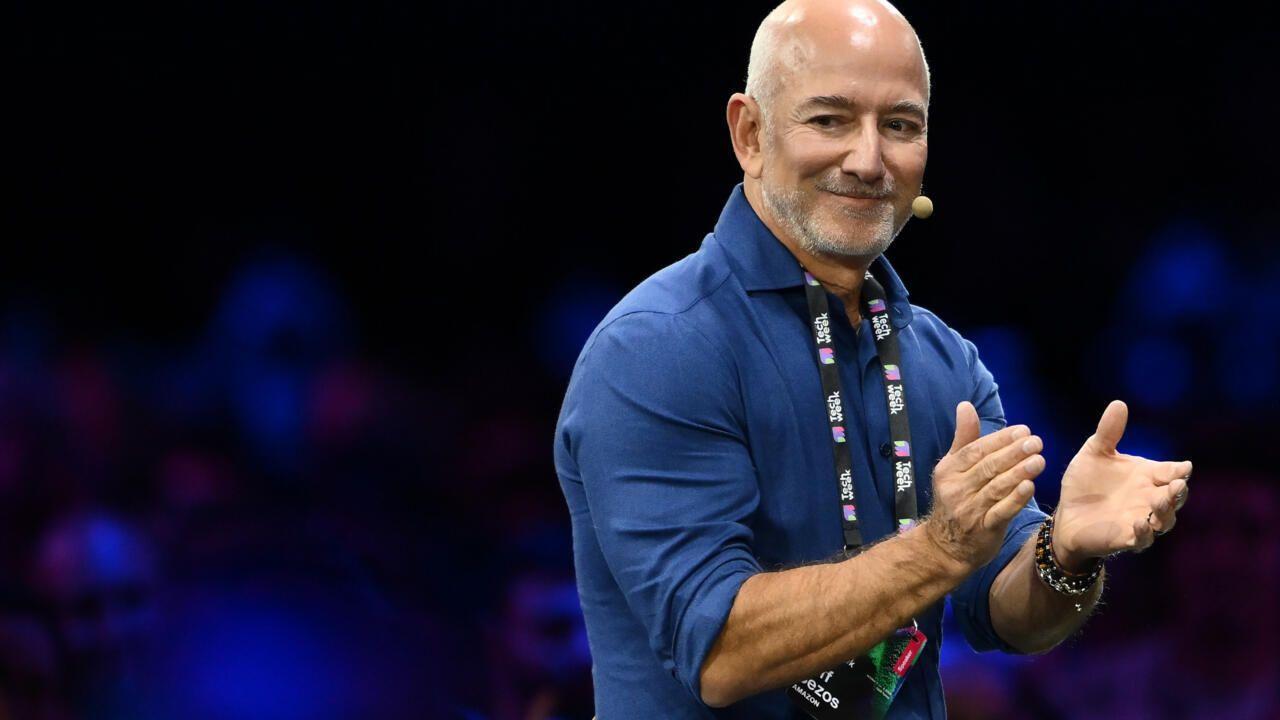
Source: France 24
Industry Skepticism and Challenges
However, not all experts share Bezos' optimism. A landmark MIT study found that 95% of generative AI pilots at companies are failing to drive rapid revenue growth
3
. This highlights the gap between the current hype and the practical implementation of AI technologies in business settings.Related Stories
Other Industry Voices
Bezos is not alone in his assessment of the AI industry. OpenAI CEO Sam Altman has also acknowledged the overexcitement in AI investments, predicting that 'someone' will lose a 'phenomenal amount of money'
3
. Goldman Sachs CEO David Solomon offered a more cautious perspective, warning of a potential 'reset' and 'drawdown' in the AI market3
.The Path Forward
As the AI industry continues to evolve, Bezos' comments suggest a period of market correction may be on the horizon. However, he remains convinced that the long-term benefits of AI will outweigh short-term market fluctuations, describing the current era as a 'golden age' for multiple technologies
5
. The coming years will likely see a shakeout in the AI industry, potentially leading to the emergence of dominant players and transformative technologies.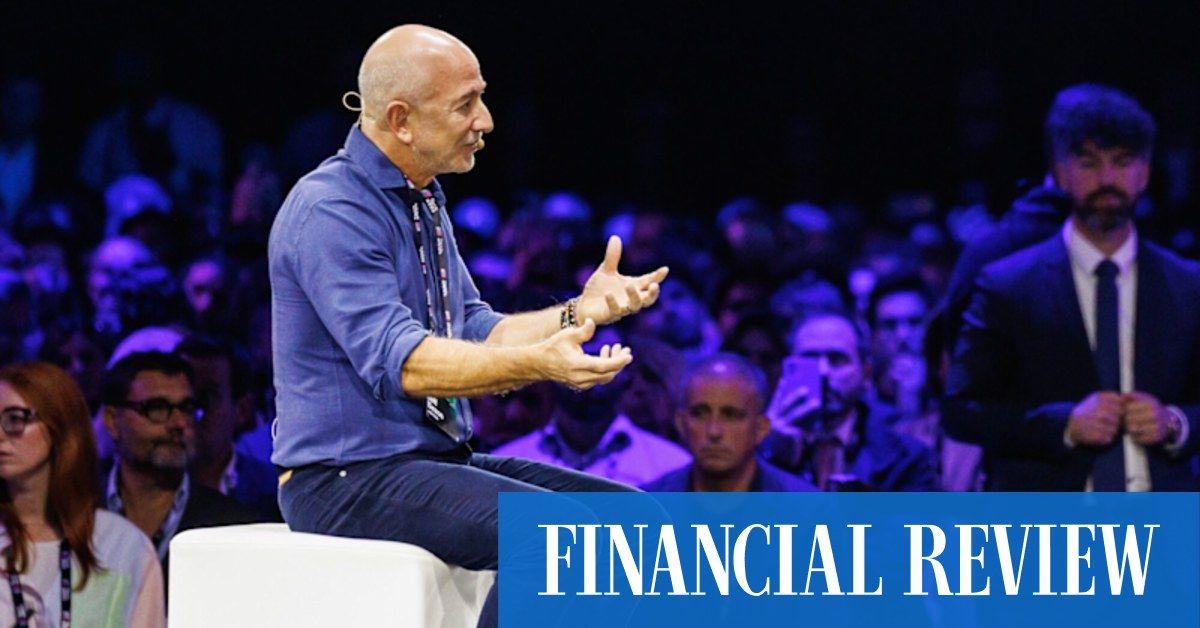
Source: Financial Review
References
Summarized by
Navi
[2]
[4]
Related Stories
Recent Highlights
1
French Police Raid X Office as Grok Investigation Expands to Include Holocaust Denial Claims
Policy and Regulation

2
OpenAI launches Codex MacOS app with GPT-5.3 model to challenge Claude Code dominance
Technology

3
Anthropic releases Claude Opus 4.6 as AI model advances rattle software stocks and cybersecurity
Technology


